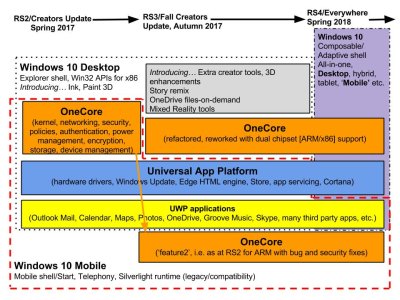See, here the problem starts. The OS has no clue what the user wants. If the user started a video, the associated semantic would be to play the video until end. When moving a process to the background, the OS should never assume that the user wants to have that process suspended. Instead the user should just stop the video or close the tab.
I don't reckon neither the OS nor the developer should be able to make the assumption.
Its more convenient to me, for the video to just automatically pause when I switch tasks. Its smoother for me. Just like when a skype call comes in and it pauses the music. IS there also ever a reason why someone would listen to music AND youtube at the same time? Yet, it happens. Theoretically I could pause the music, but I don't see I should have to, any more than someone else should have to have it stop if they want to keep listening to their podcast whilst browsing.
I believe this thing should be user controlled, not developer or OS controlled. Ie settings controlled behaviour. Only the user knows what he wants an app to do when he shifts. If the devs can't put this in their app, perhaps the OS makers can. Either way, I'd prefer to have apps behave the way I'd personally like them to.
I was only talking suspension (e.g. app is not scheduled for execution anymore) not about RAM management. Hibernation to disk is another topic. Issue is, WinRT apps are just suspended even if there is no need for hibernation.
Meh, its related IMO. If you have a phone with 4gb of ram, I don't really see why tasks should be suspended at the whim of the OS. If there's something you don't use often, but want to have run quickly and be more accessible for example. Or at least I see them as related. It's not RT, its quasi-RT. Windows doesn't manage its ram that way, it caches it in and out, on demand. But perhaps if we discuss that its too much of a tangent
You always have the option to shut down a service (or to stop an app for that matter) manually.
Okay, so lets say I have facebook installed on an android phone. If I stop the facebook service, and I load FB, the service will reload. In general the android system does not like you messing with services, or force closing apps, nor do the apps themselves. All in the name of 'the best possible experience". And what about ios - can you even kill services manually? Windows phone? IDK.
Even in use cases where that works - this seems like a messy and complicated solution for something that could be very easy, just preventing the app from running, or only letting it run when the app is open. I know folks like google will never do this, but I could do this in desktop windows 10 by disabling the service.
In any case the vast majority of apps would just naturally suspend if there is no user input so they would be suspended anyway in the background, because there simply are no events coming in.
The always connected quality of mobile apps means they usually keep running services, and those services keep updating the app system. I think probably the overall load of most apps is quite small though.
Then there are application, which are supposed to do a certain job, which needs to finish independent of any events. As example if i want to compile 500 files it would take a while and my expectation is, that compilation completes in the background.
Then there are applications, which are dependent on external events (e.g. no user input). These external events could be timers or coming from the network stack. Example of these type would be music players, gps navigation apps etc.
Finally you have application, which would naturally suspend due to synchronization with some hardware mechanism. Example would be games, which are suspended while waiting for the GPU to finish the presentation.
In all these cases i do not see a single reason, why the OS should enforce suspension when pushed to background.
I agree with all these case examples. There will be absolutely people who want to do those things.
Although I'm not generally the sort of person to compile 500 files on my smartphone, or browse/text while following GPS nagivation instructions, and every mobile OS supports background music play, Ive had a 100% real-time OS in bb10 for awhile, and honestly I've never found any benefit in it. Years of use, and not a single instance comes to mind.
I'm reminded of someone who was moving from bb10, who was complaining about the limited realtime emulation (and complete lack of in ios), saying he'd like everything he's doing to be real-time, all the time. Most people were just stratching their head wondering why he would care, but he had loads of specific examples, he was a very busy worker on his phone, and he had his reasons.
Or the fellow on here that was complaining that windows 10 mobile didn't keep playing youtube when he was doing something else.
Or even my issue with loading multiple youtube tabs in edge on desktop, and having them all play at once.
There's a lot of different user behaviours and needs out there and there's a lot of different software playing together. So for me, my ideal system rests somewhere in between, and something that doesn't exist.
I don't know if I'll ever get exactly what I want, because mobile OSes tend to be hand holders, not bastions of freedom and settings, but perhaps if WoA ever comes to mobile way down the track I'll be able to get close (by disabling services, and shifting battery management settings)
Last edited:



